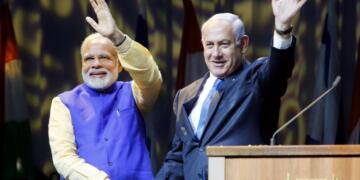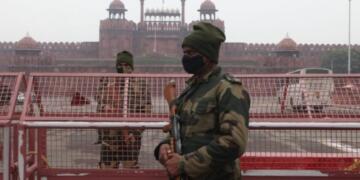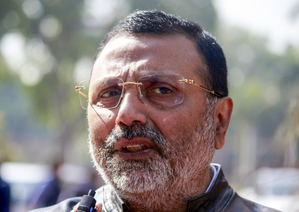As political sparring continues over External Affairs Minister S. Jaishankar’s comments regarding Operation Sindoor and Pakistan, BJP MP Nishikant Dubey has turned to the past to mount a fresh offensive against the Congress party’s foreign policy legacy.
On Monday, Dubey shared excerpts from a now-declassified letter written by former Prime Minister Jawaharlal Nehru to the U.S. President during the 1962 Sino-Indian conflict. Dated November 16, 1962, the communication reflects Nehru’s diplomatic tone toward Pakistan—a tone Dubey criticized as overly conciliatory, especially during a time of military crisis.
One section of the letter, in which Nehru expressed hope for peaceful relations with Pakistan, became the focus of Dubey’s commentary. “Read the ‘visionary’ foreign policy of Nehru ji—calling Pakistan a friend, a brother, and a good neighbour even during war,” Dubey said, taking a dig at the Congress stalwart’s legacy.
He alleged that the United States later shared the letter with Pakistani military ruler Ayub Khan, implying that such gestures may have emboldened Pakistan to initiate hostilities in 1965. “What should we think of a leader who voluntarily revealed India’s strategic mindset to foreign powers, including adversaries?” he asked.
This is part of a broader pattern in which Dubey has drawn on archival material to challenge the foreign policy approaches of previous Congress-led governments. In recent months, he has referenced diplomatic cables and letters from U.S. archives to revisit critical moments in India’s external relations, including the 1972 Simla Agreement and the 1965 war.
In one instance, Dubey pointed to a declassified letter from former U.S. President Ronald Reagan to then Prime Minister Rajiv Gandhi, which he claims reveals Congress’s readiness to engage American support during India-Pakistan tensions in the 1980s.
Dubey has also accused the Congress government of compromising national interest in the aftermath of the 2008 Mumbai attacks. He recently claimed that then Prime Minister Manmohan Singh restarted diplomatic engagement with Pakistan under pressure from Washington.
Further, Dubey has alleged that a 1988 India-Pakistan nuclear agreement was signed not on India’s terms but as a result of U.S. pressure—once again citing Reagan-era communications.
In another historical flashpoint, he revived debate over the 1968 boundary settlement in the Rann of Kutch, accusing former Prime Minister Indira Gandhi of conceding territory to Pakistan—an issue Congress has long denied was a territorial compromise.
Through these repeated references to declassified documents, Dubey continues to frame Congress’s foreign policy as deferential and short-sighted, contrasting it with the current government’s more assertive stance.
























